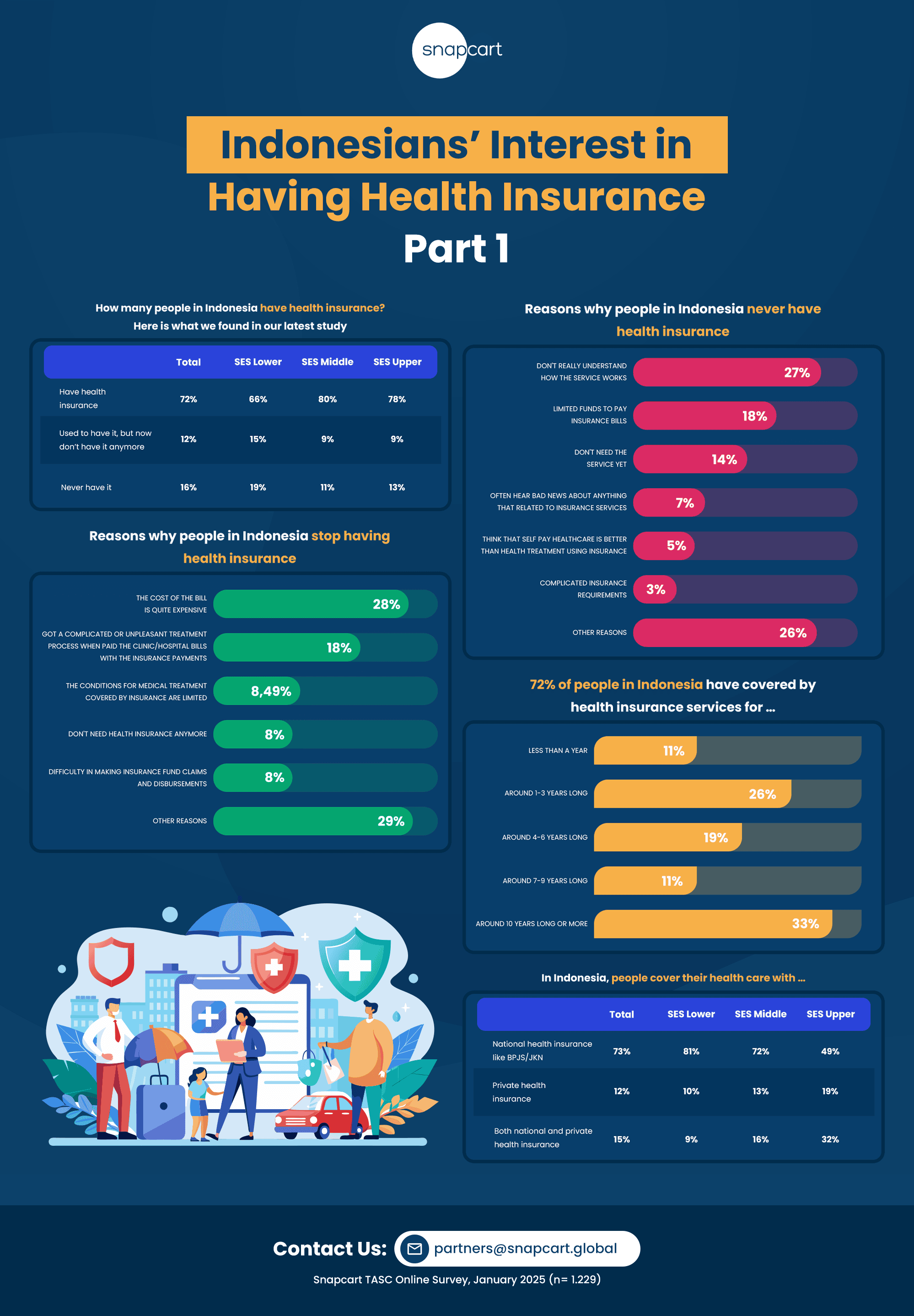Health insurance is one of the most important aspects that provides security against unexpected medical costs. However, a data from the middle of 2024 discovered that more than a quarter of the population in Indonesia is not covered yet by any health insurances [1].
Then, how about in 2025? Does the proportion of Indonesians with health insurance have increased, or are many of them stopping having it instead?
According to our 1.229 respondents, here is what we found.

From the infographic above, we can see that now, 28% of the population in Indonesia doesn’t have health insurance. This percentage is increasing from 27.8% in 2024 [1] to 28% in 2025. The total percentage from the data in 2025 is from those who have never had health insurance (16%) and those who once had it but now they no longer do (12%).
Meanwhile 72% of Indonesians who currently have health insurance are showing higher adoption among middle and upper socioeconomic statuses (SES).
- SES Lower: 66%
- SES Middle: 80%
- SES Upper: 78%
Reasons Why Some Indonesians Avoid Health Insurance
“Among those who have never had health insurance, our survey identifies some key barriers as the reasons why some Indonesians avoid it. And many of them stated that their lack of understanding of how this service works is the main cause,” said Haifa, Business Development & Corporate Marketing Associate of Snapcart, in Jakarta (23/1).
Furthermore, meanwhile people’s lack of understanding is the main reason, the rest of them also said that they are not interested in having health insurance because of these things:
- Lack of understanding of how health insurance works (27%).
- Limited funds to pay insurance premiums (18%).
- Feeling they don’t need the service yet (14%).
- Negative perceptions and bad news about insurance services (7%).
- Belief that out-of-pocket healthcare payments are better (5%).
- Complex insurance requirements (3%).
On the other hand, for those who used to have health insurance but stopped, the most common reasons include:
- High costs of insurance bills (28%).
- Unpleasant experiences with complicated claims or payments (18%).
- Limited coverage of medical treatments (8%).
- Perception of not needing insurance anymore (8%).
- Challenges in making claims or fund disbursements (8%).
- Other reasons (29%).
Indonesians’ Favourite and Duration in Having Health Insurance
In sync with the Indonesian government that requires the citizen to have national health insurance, this survey also found out that the types of health insurance Indonesians rely on are mostly on the national health insurance one:
- 73% use national health insurance programs like BPJS/JKN, especially in lower SES groups.
- 12% rely on private health insurance, with usage higher among upper SES groups.
- 15% combine both national and private insurance, providing comprehensive coverage.
Moreover, this research also revealed how long people maintain their insurance coverage:
- 33% have had coverage for 10 years or more, showing long-term commitment.
- 26% maintained it for 1–3 years.
- Shorter durations (less than a year, 4–6 years, or 7–9 years) represent a smaller portion of the population.
For more information, contact us at partners@snapcart.global or haifa.chairunisa@snapcart.global .
Source:





